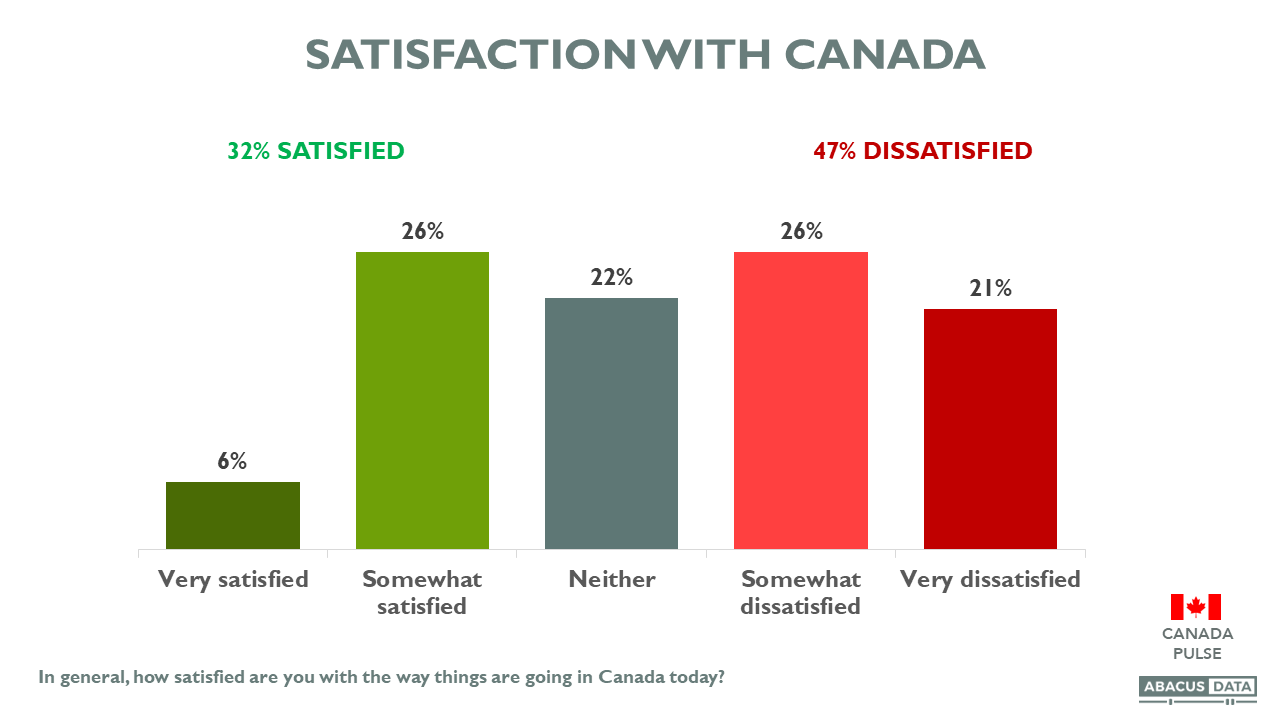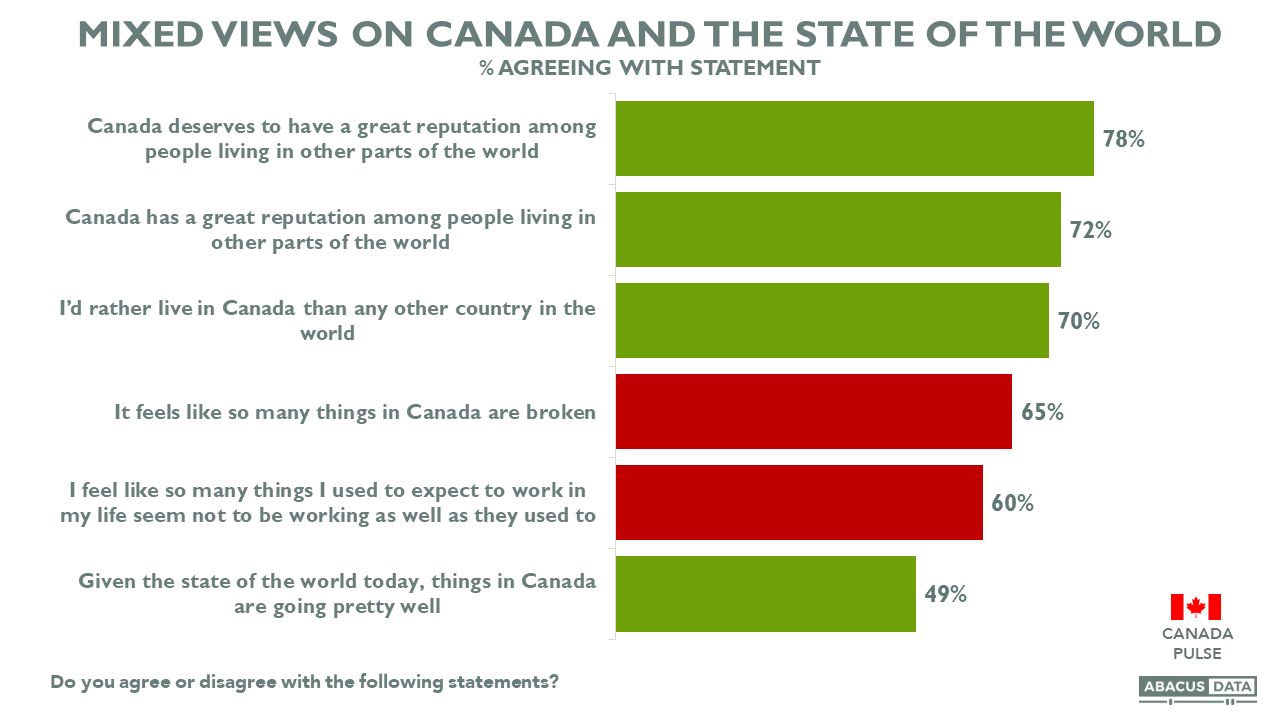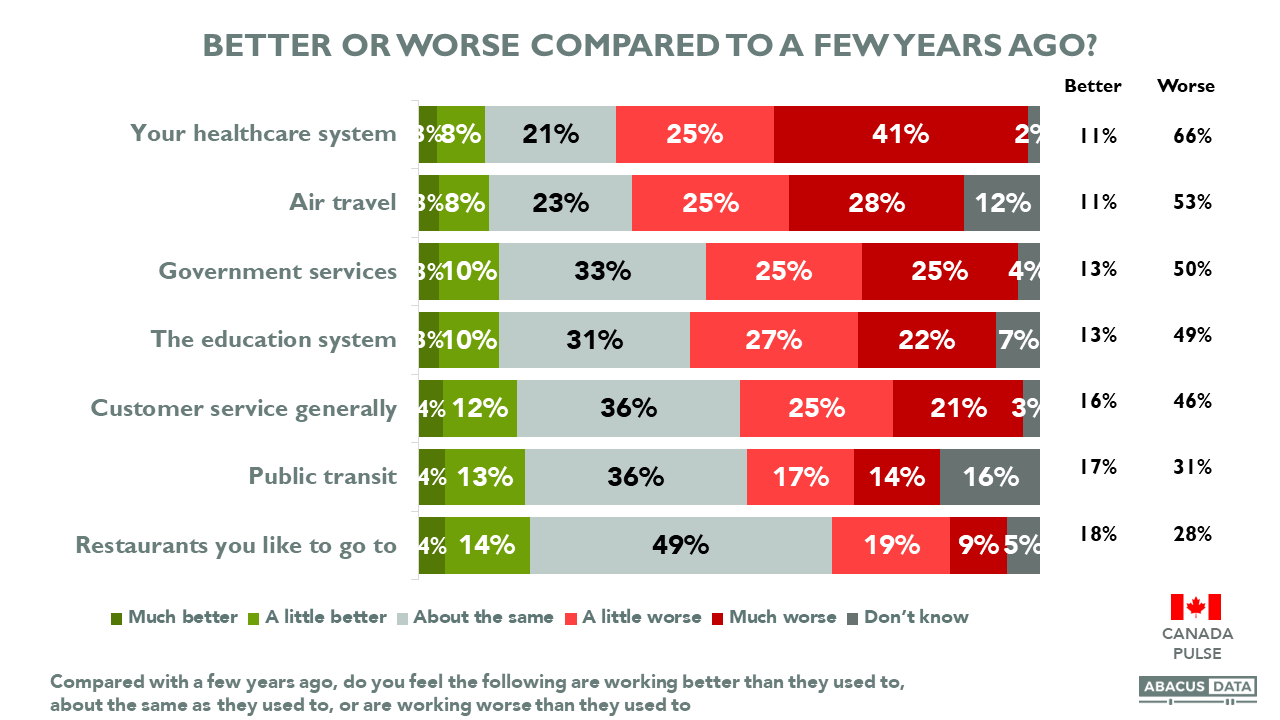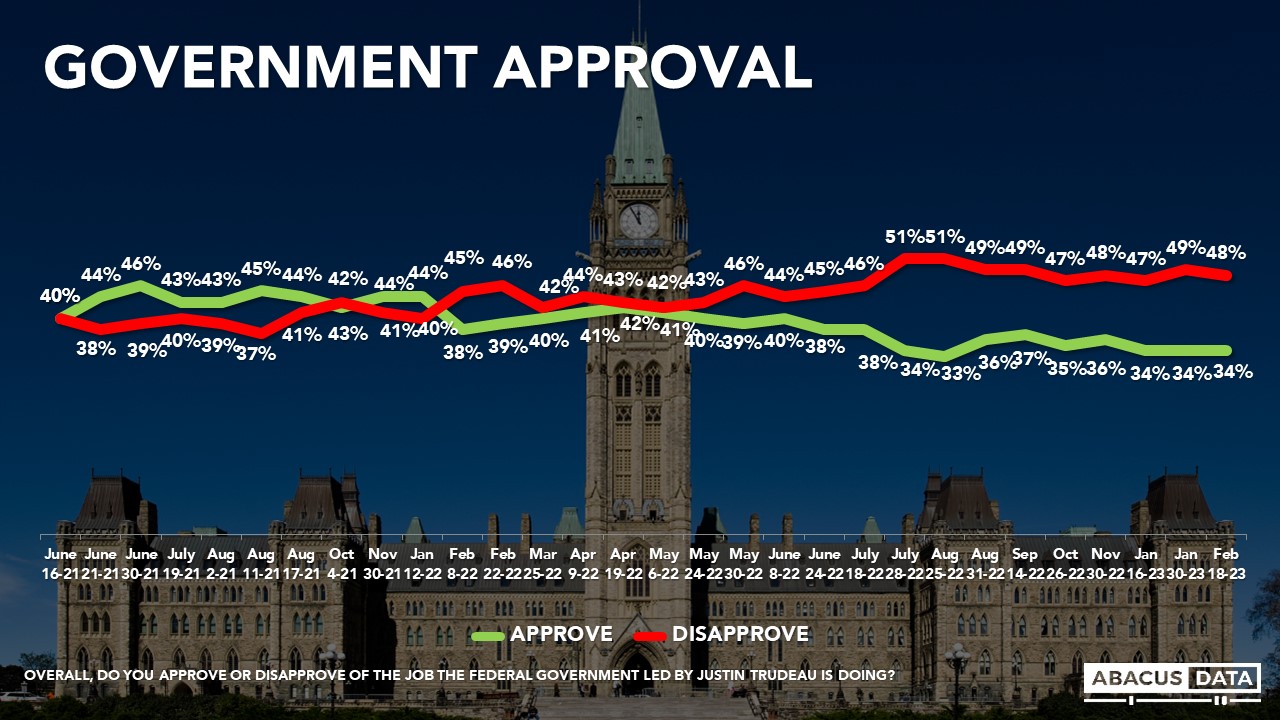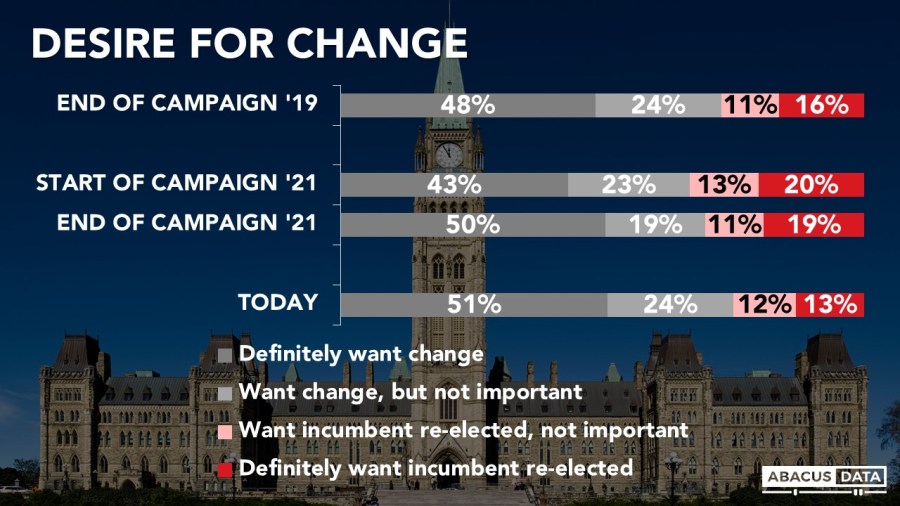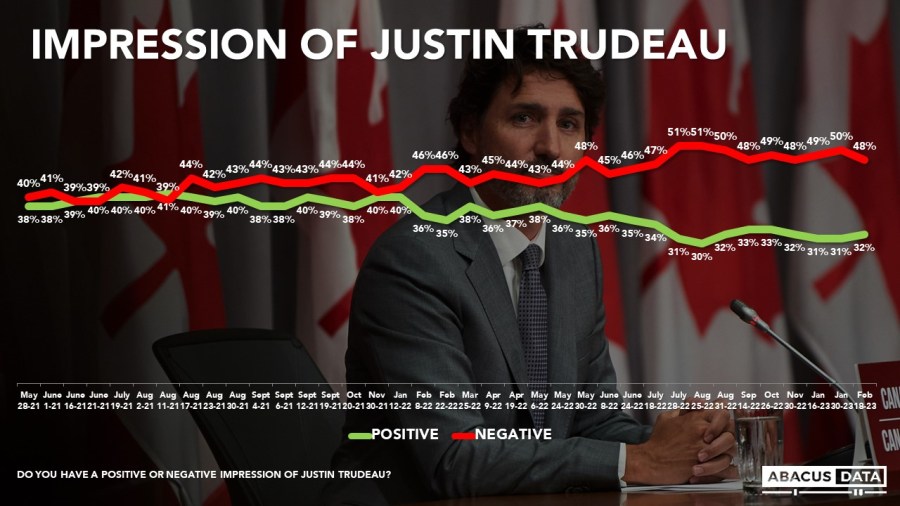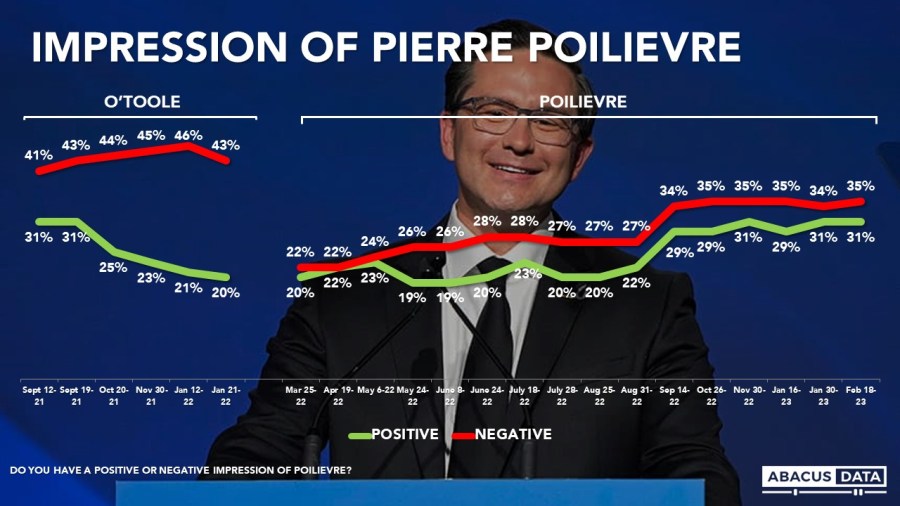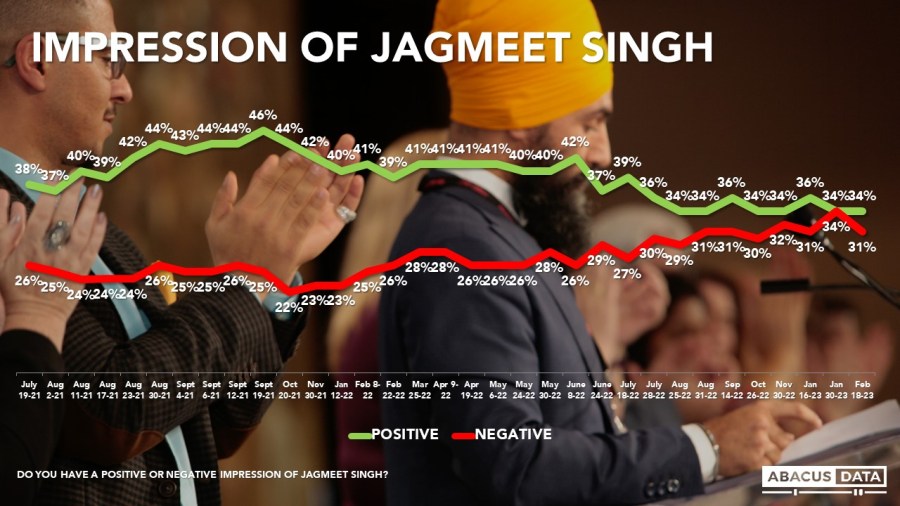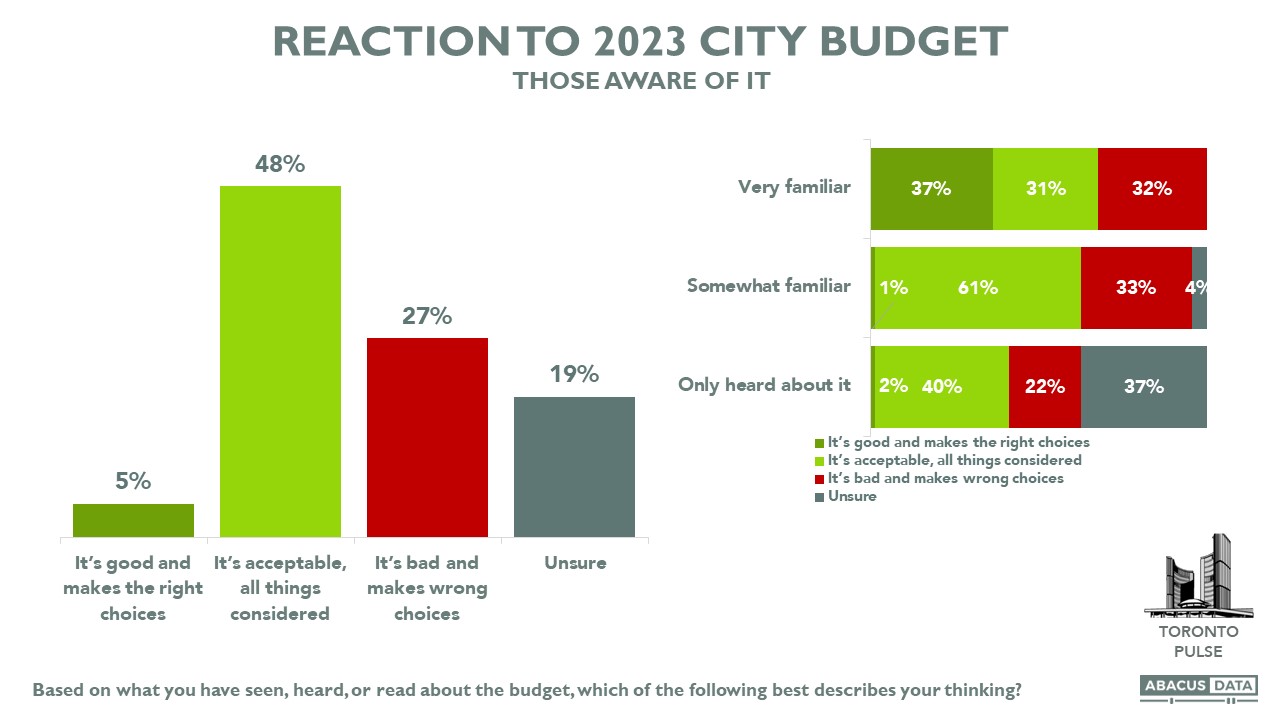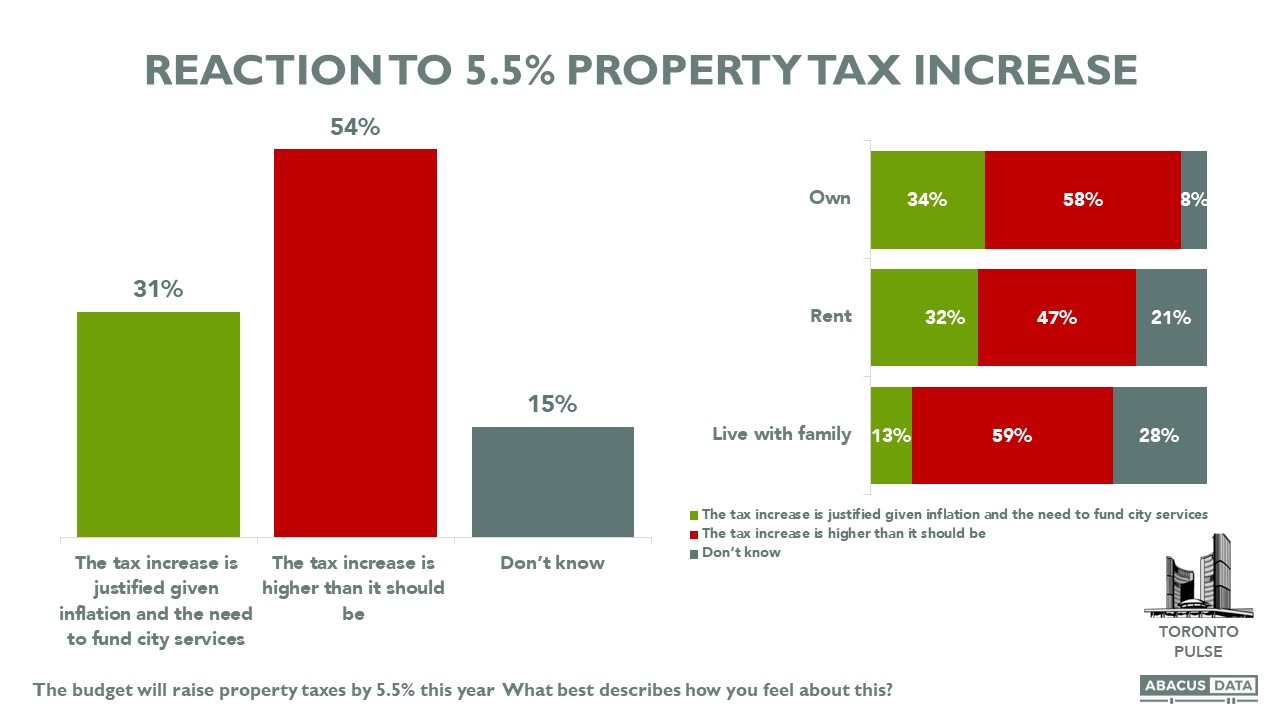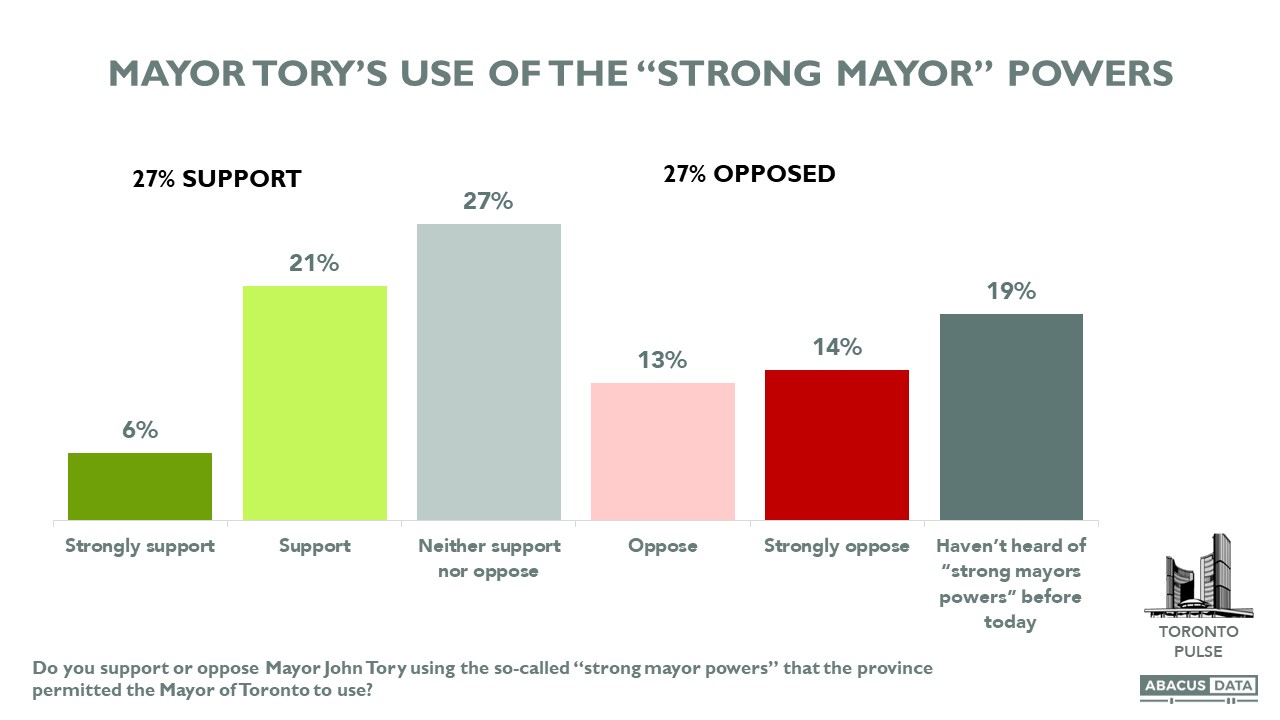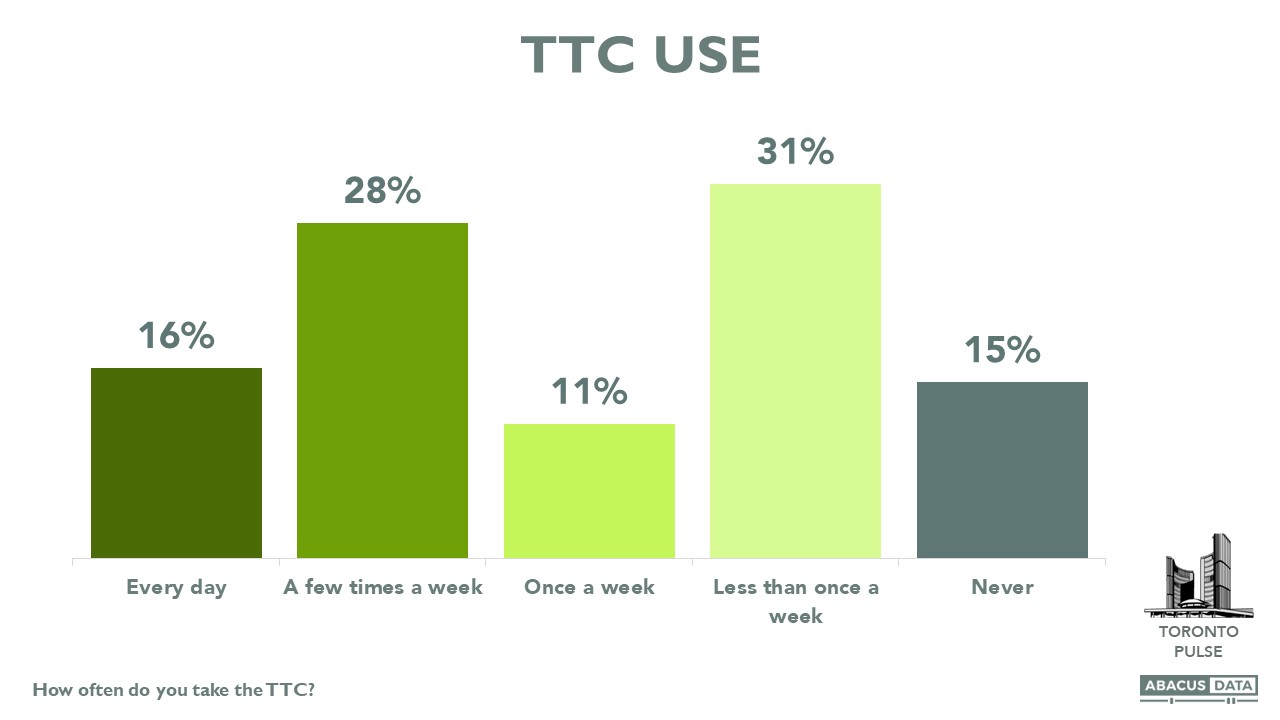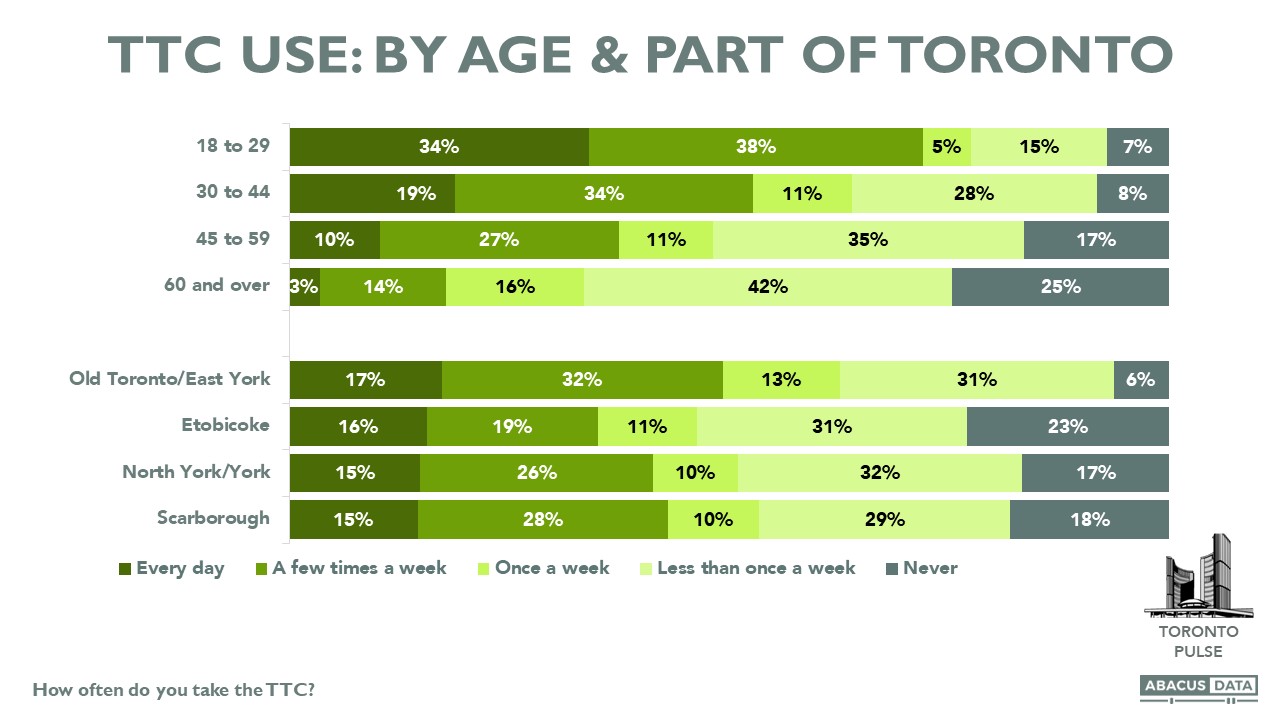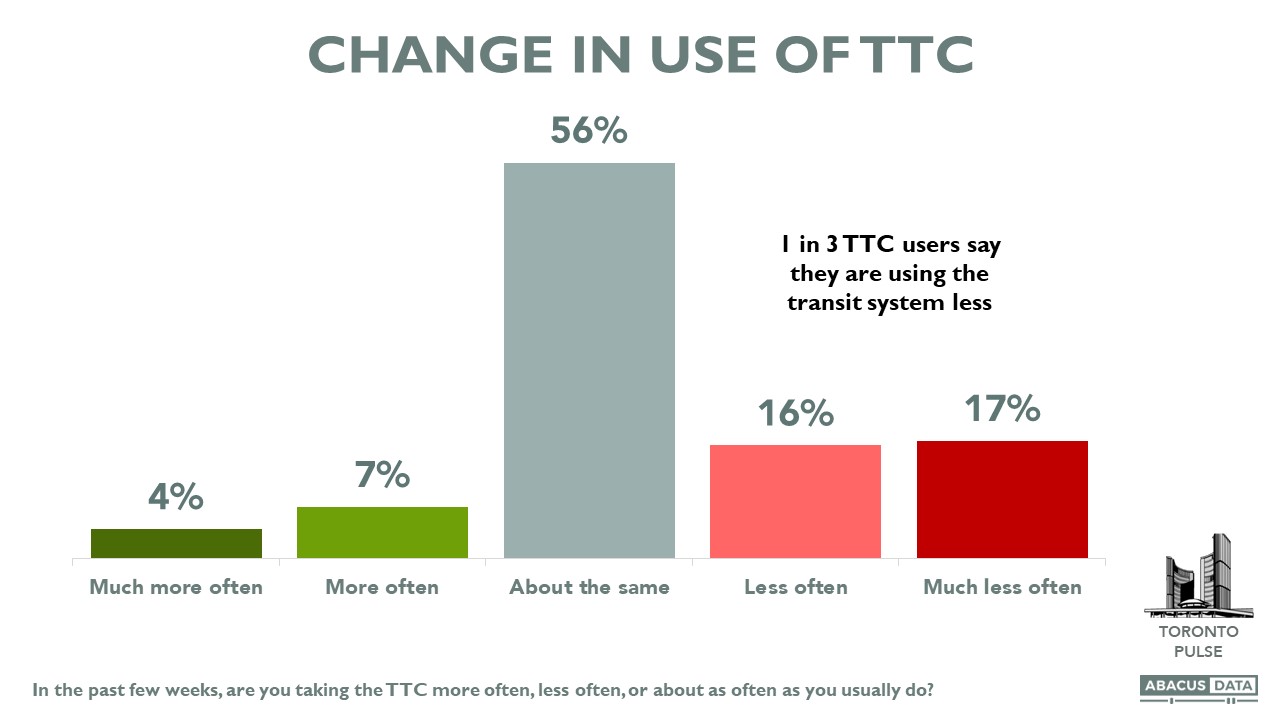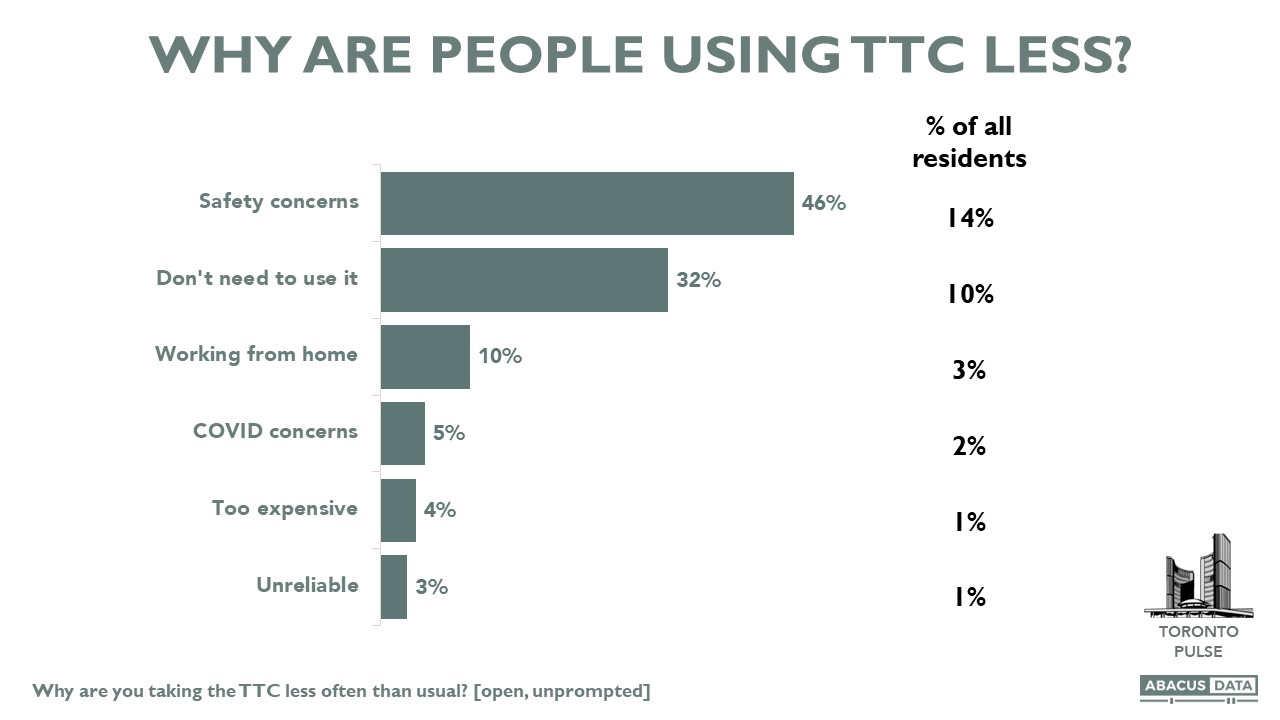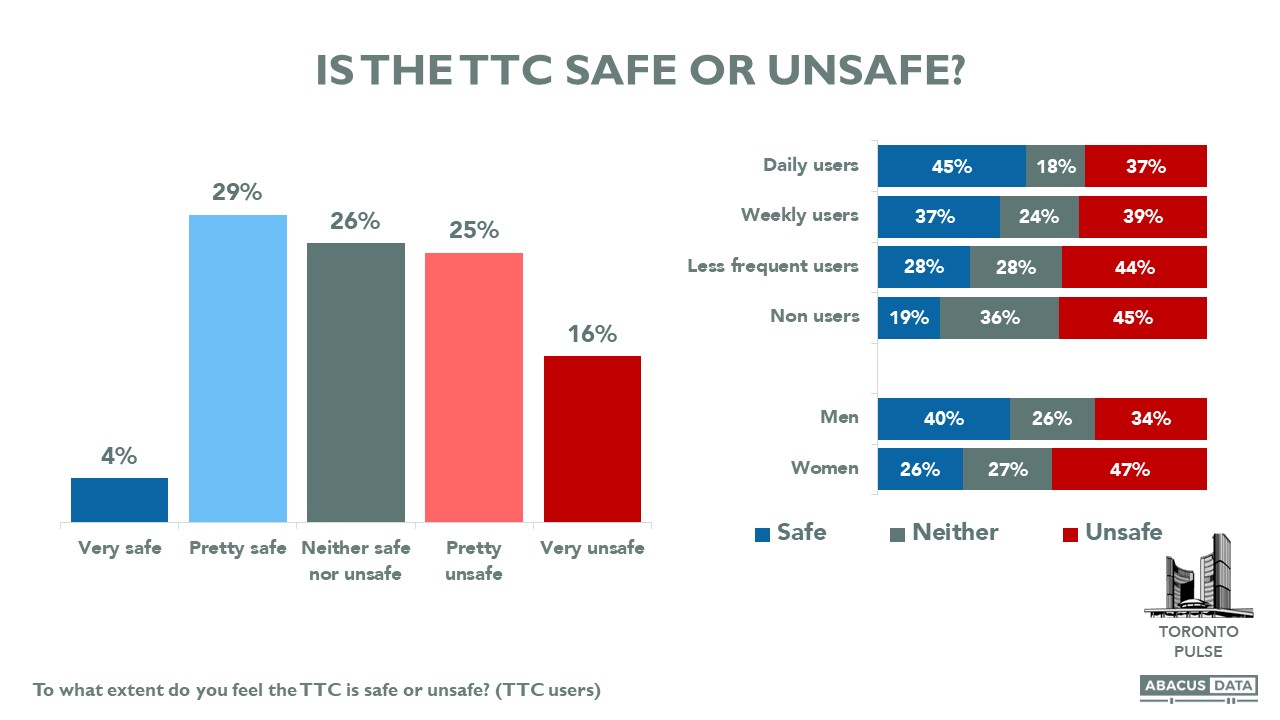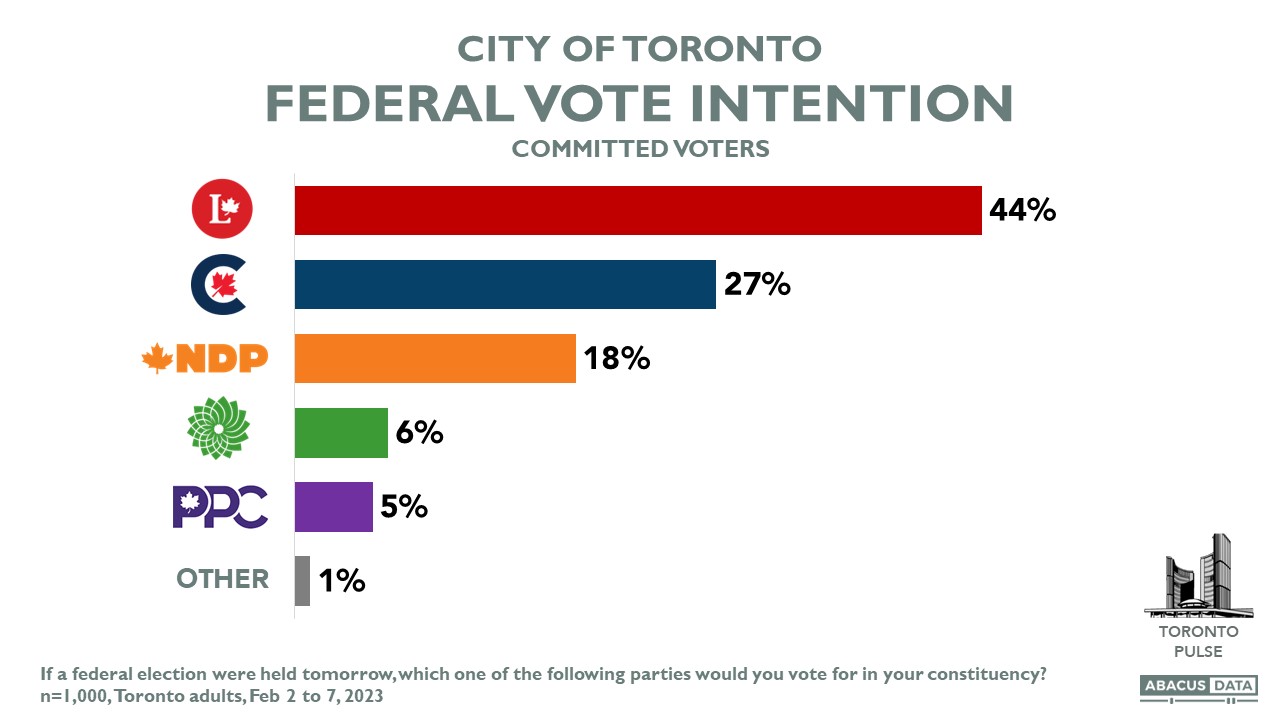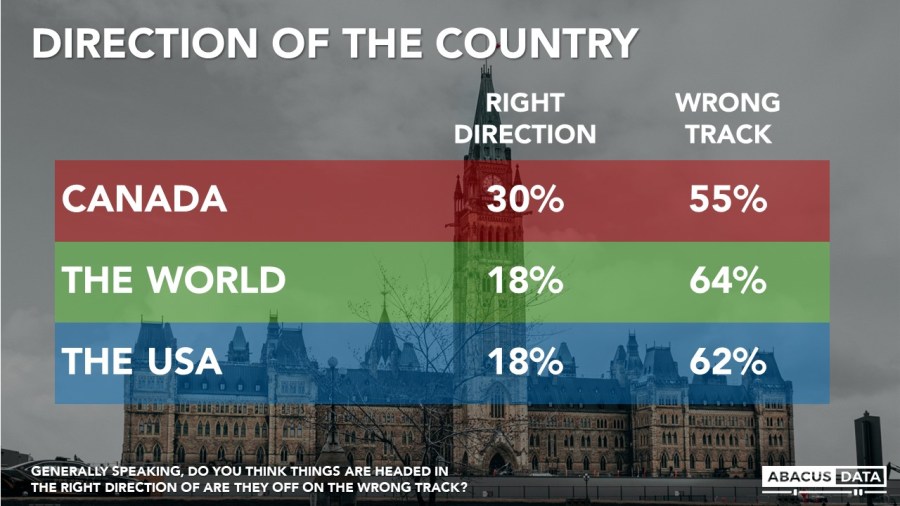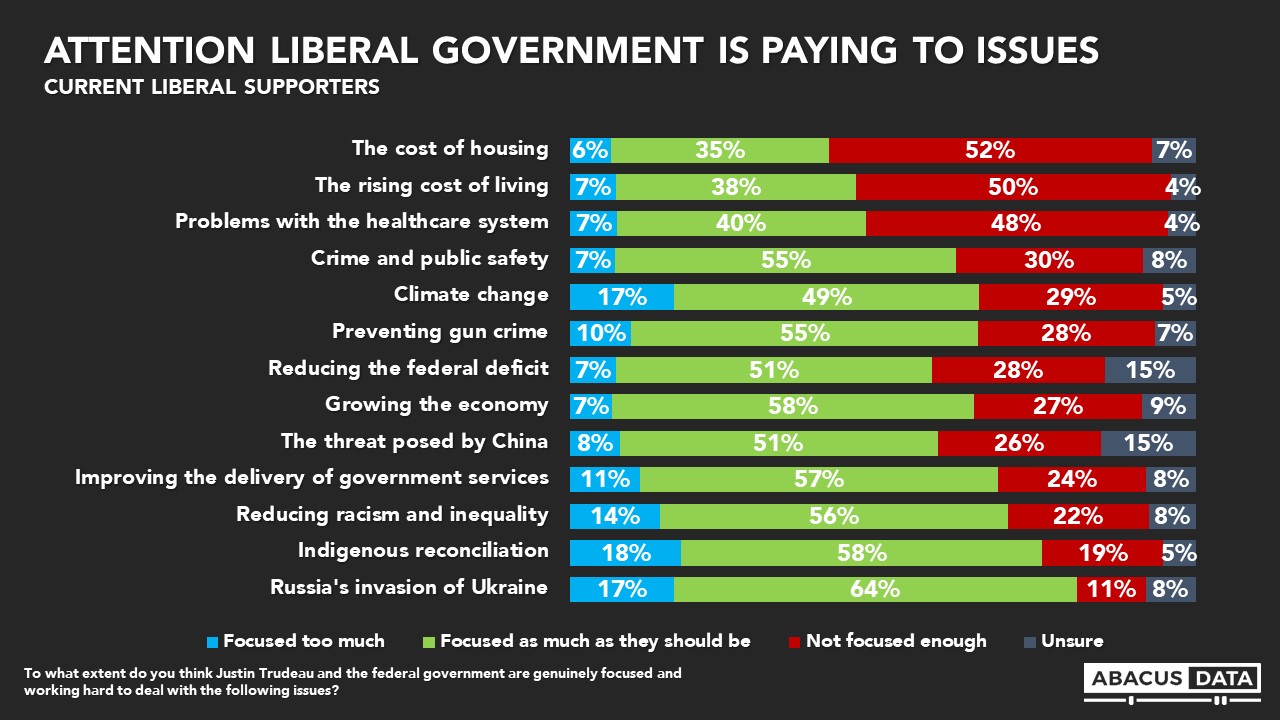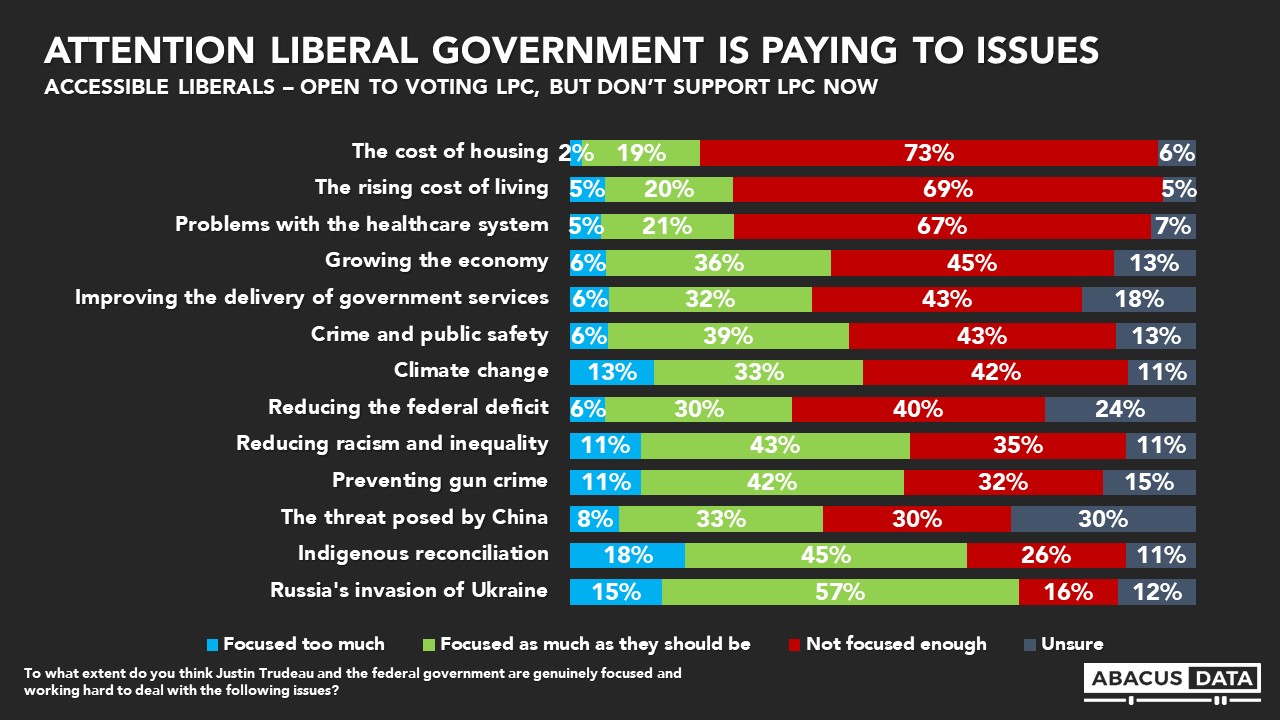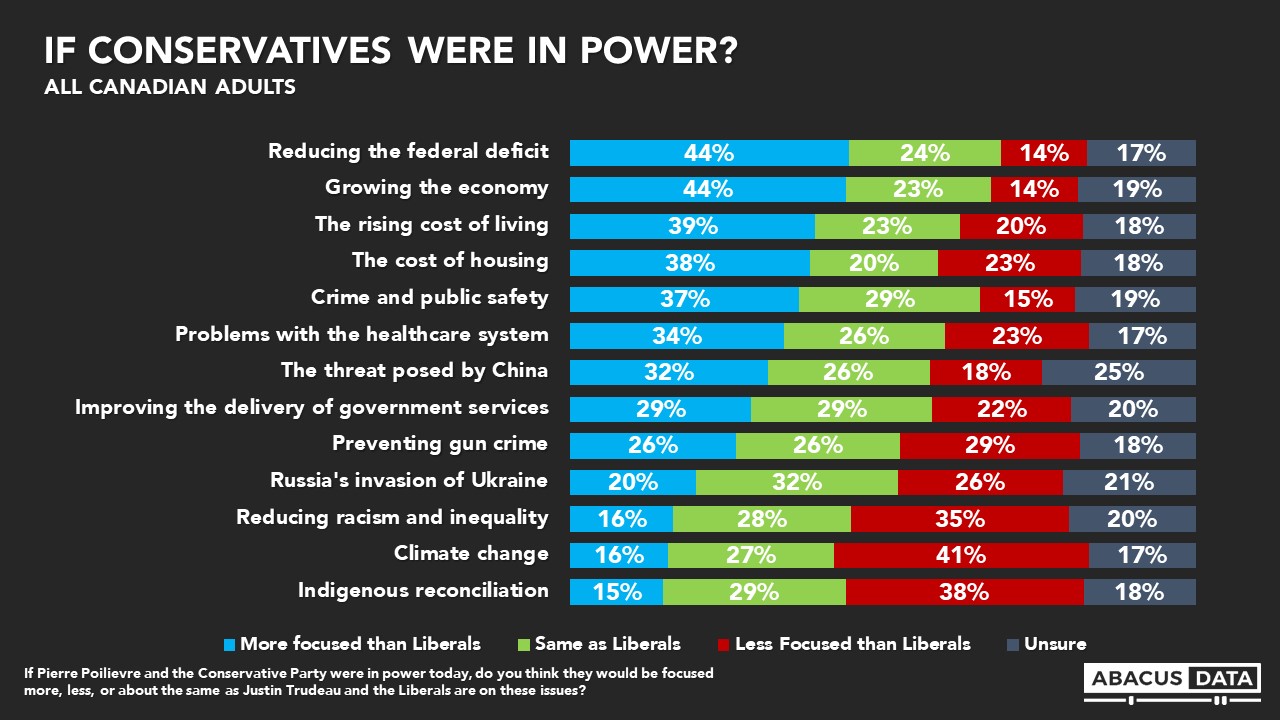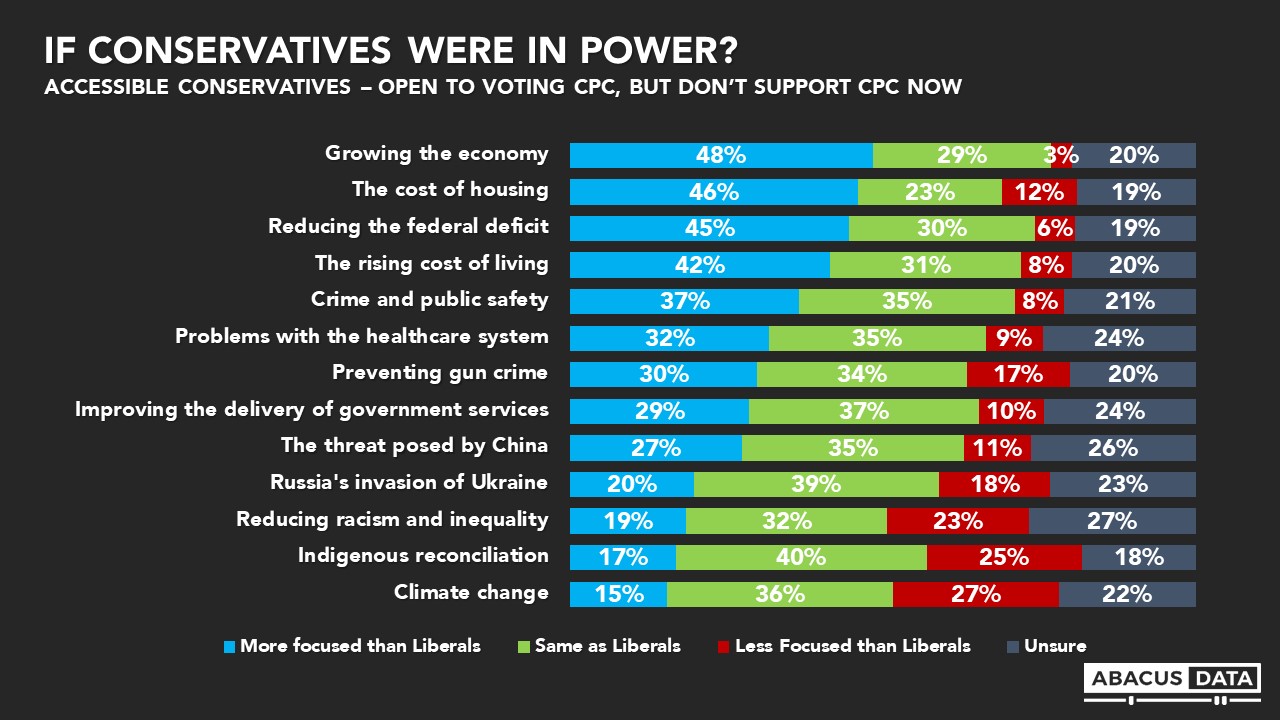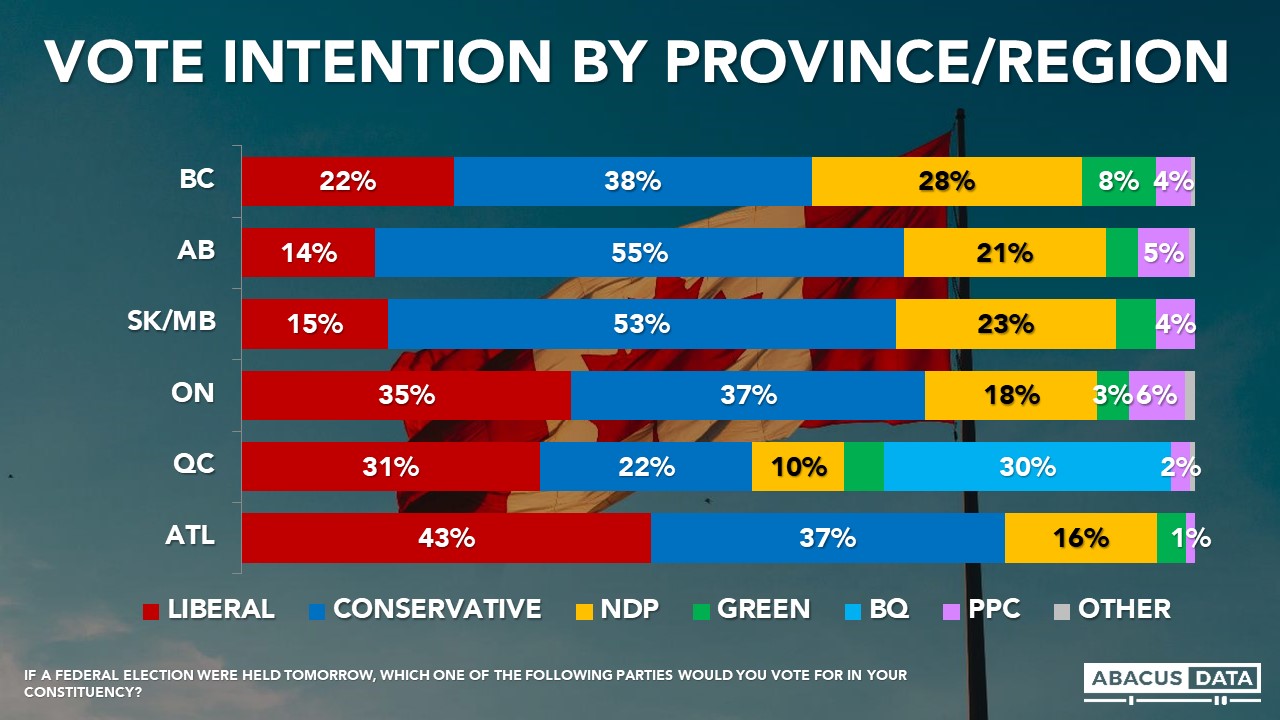Ontario Politics: PCs lead by 13 as the public reacts to the story about the Ford family stag-and-doe and wedding
From March 2 to 4, 2023, Abacus Data surveyed 1,000 Ontario adults and asked them about their views and intentions as they relate to Ontario provincial politics.
Here’s what we found:
The PCs lead the Ontario Liberals by 13 points, with the NDP back in third.
If a provincial election was held at the time of the survey, the PC Party would get 41% of the vote, followed by the Ontario Liberals at 28%, the Ontario NDP at 22%, and the Ontario Green Party at 5%. Compared with our last survey conducted in November 2022, the PCs are up 3, the Liberal vote is up marginally by 1 point and the NDP is down 4.
Note, our last survey was completed in the middle of the controversy surrounding the work action of education workers in Ontario and the provincial government’s pre-emptive use of the Notwithstanding Clause to force workers to stay on the job.
Regionally, the PCs are ahead in every region outside of Metro Toronto, with large leads in the GTHA (15 points), eastern Ontario (21 points), and the southwest (11 points). In Metro Toronto, the Liberals and PCs are statistically tied.
The PCs have a 20-point lead among men and a 7-point lead among women and lead in all age groups except for those under 30.
Since November 2022, impressions of Doug Ford have improved.
Today, 34% have a positive impression of the Premier (up 5 points) while 43% have a negative impression (down 2). 19% say their view is neutral while 4% are unsure.
We also asked about impressions of new NDP leader Marit Stiles. About equal numbers have a positive and negative impression with most saying they either have a neutral view (27%) or don’t know enough about her to say (38%).
When asked their view about some possible OLP leadership candidates (at the time it wasn’t clear the Bonnie Cromie might be interested, so we didn’t ask about her), all four individuals we tested have quite similar province-wide images. Most people either don’t know the individuals or have a neutral view.
While most Ontarians are aware of the story involving the Ford family and developers at a stag-and-doe and wedding this past summer, only 1 in 4 are following news about it closely.
When told about the story and asked whether it makes them feel more positive or more negative about Premier Ford, 8% say they feel more positive about him while 50% say they feel less positive. Those who are following the issue closely are more likely to react negatively.
Among those who said they voted PC in 2022, 70% say their impression is either more positive or it has had no impact while 30% say their impressions have become more negative, including 10% who say much more negative.
When asked specifically about their view on the provincial government’s plan to open up land in the Greenbelt for housing development, 22% support the plan, 49% oppose it and 29% say they neither support nor oppose it. About 1 in 3 of PC voters say they are opposed to the plan while a majority of Liberal and NDP supporters say they are opposed.
UPSHOT
Despite the conflict of interest allegations swirling around the Premier and his family, there doesn’t appear to have been much impact on the Premier’s image or support for the PC government. If an election was held today, the PCs would likely win another majority government. So far, almost all of the PC coalition is holding together and despite some PC voters feeling uncomfortable with the allegations, they don’t seem to be persuaded that the PCs and Doug Ford don’t deserve their support again.
As the Liberals get set to select a new leader, some of the possible candidates start with little province-wide name recognition – which is often the case for candidates running to lead a provincial party.
For the NDP, Marit Stiles begins her time as NDP leader with very much a blank slate. She’s not viewed negatively, which is a plus, but she’s also largely unknown. She’s a blank canvas to most people in the province.
The survey underscores both the resilience of Doug Ford and the potential risk if these allegations escalate and the development of parts of the Greenbelt becomes more salient. Right now, the Premier and the PCs are weathering this storm.
METHODOLOGY
The survey was conducted with 1,000 Ontario residents aged 18 and over on March 2 to 4, 2023.
A random sample of panelists were invited to complete the survey from a set of partner panels based on the Lucid exchange platform. These partners are typically double opt-in survey panels, blended to manage out potential skews in the data from a single source.
The margin of error for a comparable probability-based random sample of the same size is +/- 3.1%, 19 times out of 20.
The data were weighted according to census data to ensure that the sample matched Ontario’s population according to age, gender, education, and region. Totals may not add up to 100 due to rounding.
This study was paid for by Abacus Data Inc.
ABOUT ABACUS DATA
We are the only research and strategy firm that helps organizations respond to the disruptive risks and opportunities in a world where demographics and technology are changing more quickly than ever.
We are an innovative, fast-growing public opinion and marketing research consultancy. We use the latest technology, sound science, and deep experience to generate top-flight research-based advice to our clients. We offer global research capacity with a strong focus on customer service, attention to detail, and exceptional value.
We were one of the most accurate pollsters conducting research during the 2021 Canadian election following up on our outstanding record in 2019.
Contact us with any questions.
Find out more about how we can help your organization by downloading our corporate profile and service offering.


















